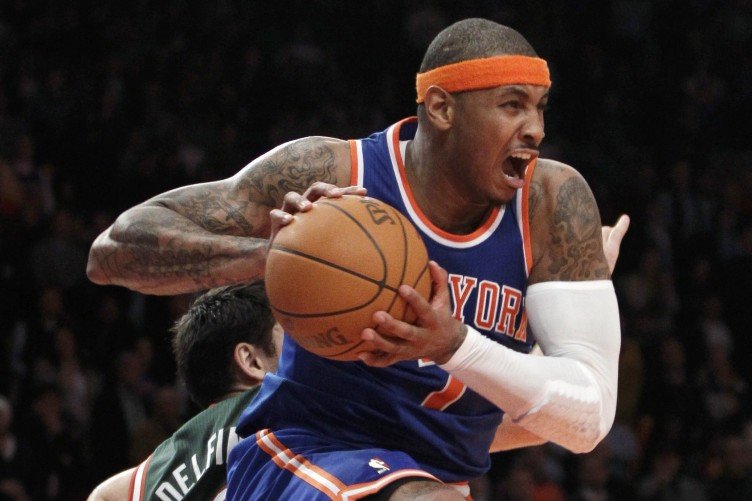
The name Glory League may be familiar to Idealog aficionados. The New Zealand company produces NBA-style basketball statistics and video for amateur basketball enthusiasts, and we interviewed Louis Gordon-Latty, Glory League’s founder, last year, when he was a very early stage entrepreneur looking for clients and funding.
Eighteen months later, after notching up 2000 subscribers in New Zealand, Gordon-Latty is taking Glory League to the home of the National Basketball Association, the US, setting up the business out of Los Angeles early next year.
In case you aren’t a basketball fanatic, it’s helpful to know that basketball statistics and video are big business. Points per game, rebounds per game, assists per game, steals per game, distances run, speed etc. Think stats packages for All Blacks, super-sized.

Gordon Latty’s vision is to give to amateur basketball players (and their mates) the sort of groovy video and stats normally only available to big league superstars (and their fans). Glory League works by setting up on-court cameras in basketball stadiums, filming amateur games, then uploading the video into Amazon. The technology syncs the footage with the official match information (baskets, fouls, free throws etc) put into the system by the match scorer, and then automatically generates statistics and an individual highlights package for each player. After retrieving their footage, players can review it, leave comments and – most importantly – share it endlessly with their mates over a few post-match bevvies.
“People want to watch themselves doing cool stuff,” Gordon-Latty says, “but normally the only people who get to see themselves are the pros. Glory League is a way of enhancing amateur sports with the sort of engaging digital content that is drawing younger players away from sports and into gaming.”
The idea for Glory League came from Gordon-Latty’s own experience playing basketball with the North Harbour Basketball Association. “I’d really look forward to my games, and then as soon as they were over I’d be gutted. There are so many big moments in basketball – not just when you score, but when you steal the ball, or when you block it. I wanted to be able to relive the moments over the rest of the week.”
He initially started collecting the paper score sheets after his matches and sending them out by email to his mates. When that was popular, he began to think how the process could be automated, and later he came up with the idea of filming the matches as well.
“Video makes it feel like the NBA, but we wanted to enhance it with statistics to enrich the experience.”

But in 2013, Gordon-Latty realised he needed to be working on his idea full time and set about trying to find someone to develop video automation technology which could produce personalised packaged and link up with the statistics being imputed by the scorers.
“I wasn’t sure we could deliver on the technology. There was someone I had been trying to get to come and work for us, but he always said no. He didn’t think he could do it either. Then one day, while I was in the US and I suggested to him that he come over for a working holiday. Within a month he had developed the virtual cameraman prototype.”
The next stage is to build a similar product for futsal (five-a-side indoor football), and work out how to paste virtual advertising in behind the players in the videos – a touch that will give it a more NBA feel, as well as bring in ad dollars.
So far around $500,000 development capital has come in from local investors, Gordon-Latty says, and money is now also coming in from subscriptions. The service costs $14.99 per player per season and Glory League has 2000 subscribers so far, with the plan to roll the service out to the 10 largest New Zealand basketball associations in New Zealand and get 30,000 Kiwi users within two years.
But New Zealand is small fry in basketball compared with the US, where basketball is part of the Holy Trinity of American sports. And in early 2016, Gordon-Latty will move his business to Los Angeles, “the intersection of gaming, media and entertainment”.
Meanwhile, back at home, Glory League is working with New Zealand’s biggest telco, Spark, and the Auckland Council to put its interactive platform into the Boroughs community basketball court project. The Glory League technology involves video fitted into ‘tricked-out’ goal posts, which captures data as players shoot baskets. They then push a button to replay their moves on a projected screen above the hoop, and they can also re-live their best shots via a smartphone and share them via the Wi-Fi hotspots on the courts.

The Boroughs project was inspired by Rucker Park in Harlem, New York, says Dion Gosling, practice director of Studio106, the architects charged with refurbishing the existing basketball courts, and installing new ones. Rucker Park is a community basketball complex set up in the 1950s, which has spawned a number of top NBA players, as well as a more dynamic, streetwise style of play. (Rucker Park is credited with being the birthplace of slam dunks and crossover dribbles.)
The first of five teched-out court complexes has now opened in Otamariki Park in South Auckland, with four more planned for other parts of Auckland.

“These kids are out there shooting hoops, connecting face to face, forming teams and creating communities,” Gosling says. “Transforming unloved areas of our city into loosely structured, sport-friendly zones is an effective and economical way to bring back community.”
Spark CEO for home, business and mobile Chris Quin hopes to see some Tall Blacks coming out of the Boroughs project.
“Rucker Park in Harlem is the original home of streetball in the US – where a number of basketball legends have been born – so with the help of some interactive tech on the courts, we’re predicting some pretty big things to unfold here as well.”





